Pollution
Latest

MIT gives pesticides an electric charge to improve stickiness
There are plenty of problems with pesticides -- making bees dumb, anyone? -- but the biggest is probably how much is wasted while it's being sprayed onto crops. Because of how certain leaves naturally repel water, it means that hardly any anti-bug treatments actually, you know, stick to them. In fact, only two percent of the spray stays in place, according to MIT News. So, to change that, a team of researchers have devised a way to increase the amount of liquid a leaf's surface retains.

ICYMI: Studying the 1700's clouds for pollution clues
try{document.getElementById("aol-cms-player-1").style.display="none";}catch(e){}Today on In Case You Missed It: Scientists at CERN constructed a large chamber to replicate the cloud environment before the world's Industrial Revolution got its start after 1750. The thought had been that there were far fewer clouds on Earth then, but already results are pointing to a different reality that could help guide present day modeling of global climate change. If you want to take a peek at the continent colonizing study showing we were taught lies in history class, that's here. The toaster of your five-year-old's dreams? That's here. As always, please share any interesting tech or science videos you find by using the #ICYMI hashtag on Twitter for @mskerryd.

EPA hands out $4.5 million to build better air pollution sensors
The Environmental Protection Agency doesn't just want to clamp down on pollution... it wants to develop the technology that helps spot that pollution. It's handing out a total of $4.5 million in grants to six research teams (including Carnegie Mellon, MIT and the University of Washington) to help develop lower-cost, easier-to-use air pollution sensors. EPA officials hope that this will help neighborhoods track their own air quality and improve health on a local level. You'd have a better idea of whether or not industry really is contributing to the smog in your neighborhood, for instance. Although it'll likely take a long while before you see results come out these grants, they could easily pay off if they lead to cleaner air in your neck of the woods.
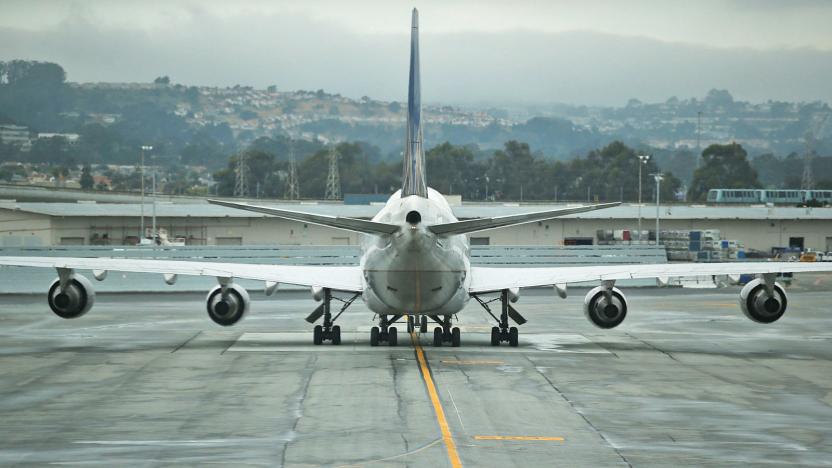
EPA findings should lead to caps on aircraft emissions
It's no secret that aircraft contribute to harmful emissions like road-going vehicles, and the Environmental Protection Agency is one step closer to keeping that pollution in check. It recently finalized findings showing that some aircraft produce air pollution that contributes directly to climate change. As a result, the EPA is now free to set standards for aircraft emissions that help the US honor the Clean Air Act and, ultimately, its commitment to the Paris climate change agreement. While the US is already backing an international standard, this gives it the chance to demand tougher (or at least, more America-specific) requirements.

Biggest US coal miner bankrolled anti-climate change groups
The wealthy using its money to suppress (or avenge) inconvenient truths is nothing new, even if nobody thought to use a washed-up pro wrestler for cover until now. But there are far worse things for a one-percenter to do than force Gawker into bankruptcy, such as helping to push the planet towards a preventable ecological crisis. The Guardian has found that Peabody Energy, America's biggest coal mining company, used its cash to bankroll an enormous and diverse group of pro-carbon lobby groups and scientists. The now-bankrupt firm is accused of funding what one source described as "the heart and soul of climate denial."
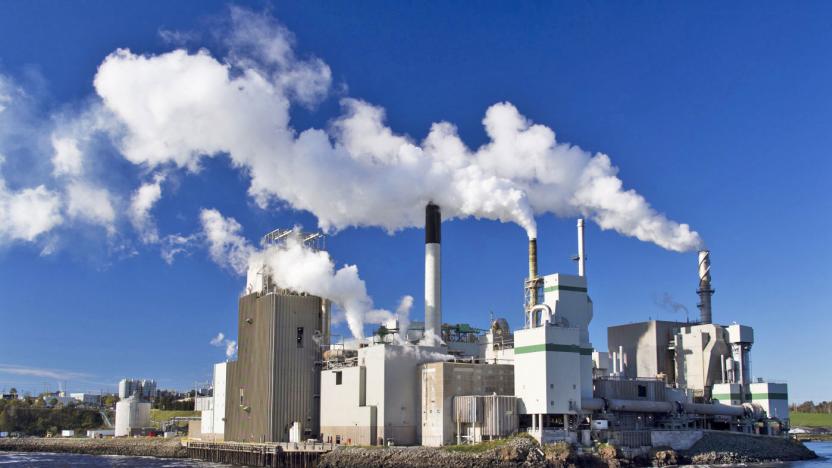
NASA satellite finds 39 unreported sources of air pollution
Scientists at NASA's Environment and Climate Change Canada and researchers at University of Maryland, College Park and Dalhousie University discovered 39 unreported "major" sources of toxic air pollution. Using the space agency's satellite imaging, the group located the man-made sources where toxic sulfur dioxide is being emitted. Sulfur dioxide (SO2) is a contributor to acid rain and is regulated on the ground by the EPA. However, to properly police the emissions, the government agency has to know the location of the pollutants.

uHoo edges out other air quality monitors with extra sensors
We've now gotten to the point where we can rely on pigeons for monitoring outdoor air quality, and there are plenty of conventional options for indoor as well. But there's always room for improvement, which is why we're looking at the uHoo. Impressively, this pint glass-sized device packs up to five air pollutant sensors, thus allowing it to measure the usual dust and volatile organic compounds, as well as carbon dioxide, carbon monoxide and ozone -- these three can't be detected by most other monitors in the consumer market. On top of that, the uHoo can also keep an eye on the temperature, humidity and air pressure, which comes in handy as these contribute to our wellness, too. The live data is fed to your iOS or Android device via Wi-Fi, and the app will alert you when the air goes bad in one of the rooms.

Tesla puts its extreme air pollution filter to the test
When Tesla revealed that the Model X (and eventually, the Model S) would have a HEPA filter so effective that it could protect against bioweapons, people were understandably skeptical. Can it really save you from terrorists? Apparently, it just might. Tesla has revealed some of the in-house testing it conducted for the filter's Bioweapon Defense Mode, and its ability to clean the air borders on overkill. The electric car maker put a Model X into a bubble with extremely dangerous air quality levels (83 times dirtier than the EPA's "good" rating) and watched as the filtration system rendered the air so clean that sensors couldn't even detect what pollution was left. You could drive through a "military grade" attack and not even notice, Tesla claims.
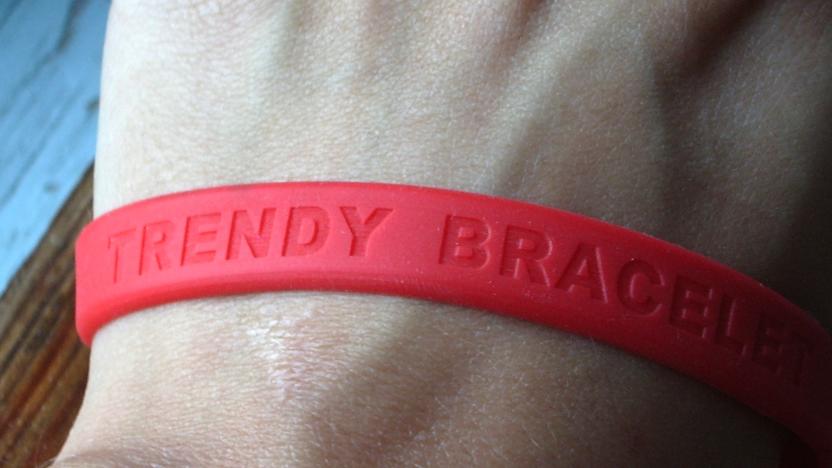
Your next colored bracelet can detect environmental pollution
Turns out your collection of neon-colored silicone bracelets have a use beyond showing support for a fallen-from-grace cyclist's non-profit after all. The material can actually trap pollutants you might be exposed to during the course of your day, according to a study by Oregon State University. Specifically, OSU was looking for how present fire retardant chemicals were in the households of 92 pre-school children. What'd the researchers find? That somehow, over the course of a week, these kids were exposed to polybrominated diphenyl ethers that aren't being produced domestically anymore.

VW will reportedly pay you $5,000 to settle its emissions scandal
If you were burned by Volkswagen's emissions cheating and don't think that $1,000 in credits and gift cards will cut it, we have good news for you... maybe. Die Welt sources understand that VW has reached a settlement deal with US officials that will have it pay affected diesel car owners $5,000 each to make up for misleading the public on the eco-friendliness of its vehicles. That's on top of what VW will have to pay to fix the cars in question. Provided the automaker gets the deal approved on April 21st (the deadline a court gave to agree on a fix), it'll avoid a trial that could easily have proven more costly.
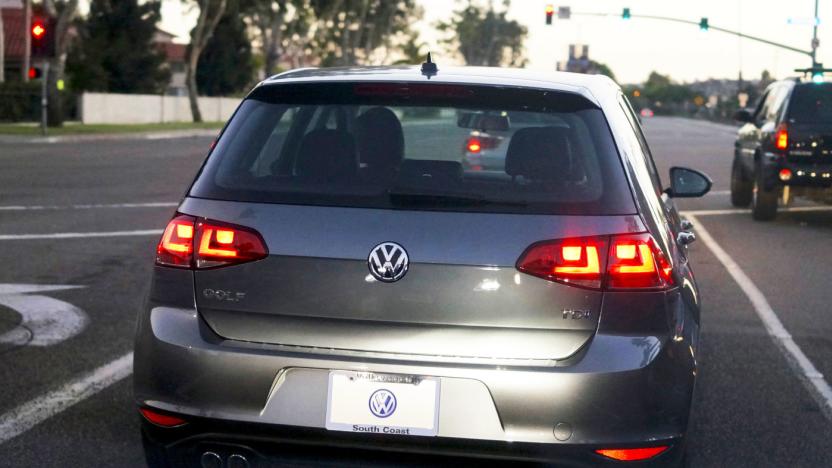
VW staff used code words to hide emissions cheating
Volkswagen's problems cooperating with emissions investigators aren't just a matter of navigating privacy laws... if you believe insiders, it's because the culprits did a good job of keeping things hush-hush. Bloomberg tipsters claim that VW staff used "dozens" of code words to hide emissions cheating activities, making it difficult for internal investigators to find evidence. They'd refer to the technology as "acoustic software," for example. Combine that with old, inadequate computers and it has supposedly been difficult to pin the illegal behavior on specific people.

Study: we can ditch fossil fuels in 10 years, if we want to
The quest to end the use of fossil fuels might not be as daunting as you think. A University of Sussex study claims that humanity could drop coal and oil within a decade, based largely on historical evidence that many tend to overlook. Professor Benjamin Sovacool notes that energy transitions have happened quickly whenever there was a combination of "strong government intervention" with economic or environmental incentives to switch. It only took 11 years for the Canadian province of Ontario to abandon coal energy, for example, while nuclear power surged to 40 percent of France's electricity supply within 12 years. In the case of fossil fuels, it's a combination of climate change worries, dwindling resources and advanced technology that could step up the pace.
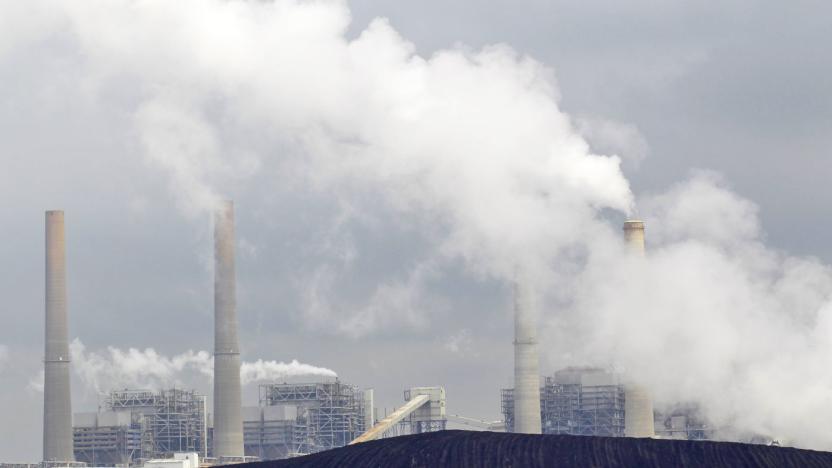
Apple, Google and Microsoft back EPA's emissions strategy
The White House and Environmental Protection Agency may have their plans for carbon dioxide emissions reduction hanging by a thread in court, but they're getting some big allies in their corner. Amazon, Apple, Google and Microsoft have submitted a joint legal brief supporting the EPA's Clean Power Plan following a challenge by 29 states. They argue that the emissions regulation is not only realistic, but makes good business sense. Prices for solar and wind power are coming down, and their energy is a hedge against both volatile fuel prices and outages -- you can store unused power to ride out a storm, for instance.

Pigeons track air pollution in London with tiny backpacks
A small flock of pigeons have been given tiny backpacks to monitor air pollution in London. The project was dreamt up by Plume Labs, a company focused on the environmental problem, and the marketing agency DigitasLBi. The rucksacks are fitted to the birds using small fabric vests, and the sensors inside are able to measure nitrogen dioxide and ozone levels. Only 10 birds are in flight at any one time, so the amount of data being collected is pretty small. However, it's still a creative way of analysing the air that millions breathe in every day in the capital.

Commercial aircraft get their first global emissions standard
Ground-based vehicles have had emissions standards for a while (just ask Volkswagen), but commercial aircraft like passenger jets? Not so much. However, the world just took one big step toward cleaning up the skies: a total of 23 countries have agreed to set the first international carbon dioxide emissions standard for commercial aircraft. If the measures are adopted as recommended, new airplane models will have to meet the tougher guidelines in 2020. New aircraft from existing model lines will follow suit in 2023, and there will be a complete cutoff for non-standard aircraft in 2028.
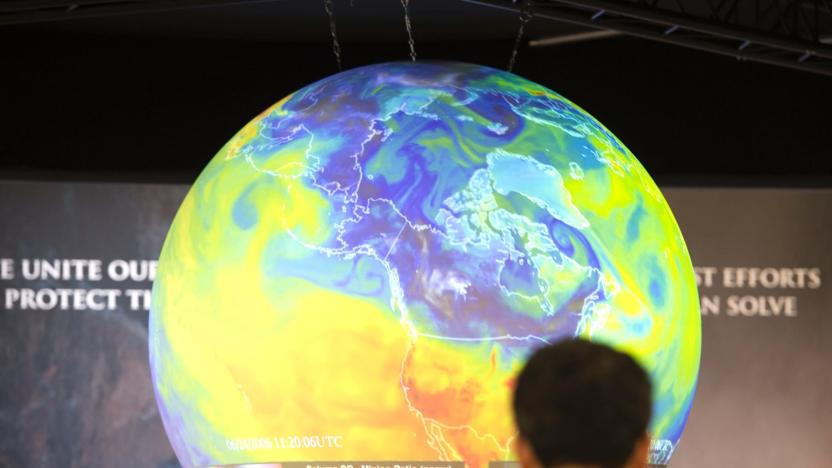
Human climate influence means we're skipping an ice age
According to a new study published in Nature, human-generated climate change -- specifically the massive additions of carbon dioxide and other greenhouse gasses to the atmosphere -- is causing the Earth to effectively delay the start of the next ice age by 100,000 years. Typically, ice ages occur once every 50,000 years or so; as they have in at least eight regularly intervalled times in the Earth's history.

VW wants to fix emissions cheating with catalytic converters
Volkswagen has already promised to recall US vehicles caught up in its emissions cheating scandal, but how is it actually going to fix most of them? We now have a good idea. Bild, the Financial Times and Reuters all hear that VW is proposing the installation of a catalytic converter (reportedly "made in part from new materials") on 430,000 of the 600,000-plus affected cars sold in the US. It's not certain whether or not the country's Environmental Protection Agency is onboard with the idea, but that may answered when VW chief Matthias Müller meets with the American regulator on January 13th.

VW isn't handing documents to US emissions investigators
Volkswagen may be willing to recall vehicles affected by its emissions cheating scandal, but that doesn't mean that it's being entirely cooperative with investigators. Attorney general offices in multiple American states report that VW is refusing to hand over documents covering executives' communications -- that would violate German privacy laws, the company says. Whether or not it would, the moves are making it difficult to determine how much higher-ups knew about dodgy car emissions before the facts became public. And this isn't the only instance where it wasn't forthcoming. In filing a lawsuit against VW, the Justice Deparment claimed that the car maker had "impeded and obstructed" investigations.

Automatic garbage bin promises to clean the oceans
Take a close look at the water in your local marina and you'll probably shudder at the amount of waste floating around. You'd practically need a dedicated clean-up crew to make it safe, wouldn't you? However, a pair of Australian surfers think they have a better way. Their crowdfunded Seabin promises to clean up marinas (and by extension, the ocean) through the one-two combo of a natural fiber garbage bin and an automated, above-the-water pump. It's almost too simple a concept, but it seems to work -- it sucks in all kinds of filth (including oil) and spits out clean water. You'd ideally leave a bunch of Seabins running at the dock all day, keeping the water relatively pristine.

Final climate change deal keeps emissions in check, if it sticks
After weeks of work, the United Nations is on the cusp of reaching a deal to prevent climate change... hopefully. A just-published final draft agreement sets some clear targets that include a hefty amount of cooperation. The deal would limit the global temperature increase to "well below" 2 Celsius above pre-industrial levels, and reach a balance in greenhouse gas emissions (that is, as many offsets as there are emitters) by the second half of this century. There would be a progress review every five years, and developing countries would get a helping hand to the tune of $100 billion per year as of 2020.







